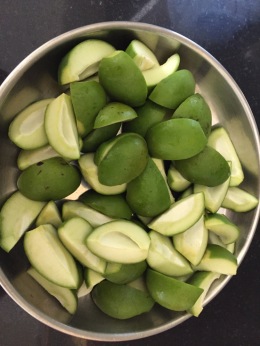Thinaimozhi 50 – 25
Her friend says:
As pregnant dark clouds mix with air and rise,
sweating male deer leaps up in joy with its doe;
My fine bosomed friend! – our lover will arrive
now, the weather assures us so.
தோழி கூற்று:
கரு இயல் கார் மழை கால் கலந்து ஏந்த,
உருகு மட மான் பிணையோடு உகளும்;-
உருவ முலையாய்!-நம் காதலர் இன்னே
வருவர்; வலிக்கும் பொழுது.
He has gone to earn money. He promised to her that he will come back by monsoon. He hasn’t come back and she is starting to panic. Her friend assuages her saying, “Look at the dark clouds pregnant with water. It is about to rain. As the temparature cools down, the deer which was sweating in the heat leaps up joyously with its partner. Your lover too will come back now and make you joyous like those deers. The rain clouds assure us about that.”
“Clouds pregnant with water” stands for the monsoon bringing good news. ”உருகு மடமான்” – male deer that was melting(in the heat).
பிணை – female deer / doe
உகளல் – jump
வலித்தல் – tells / assures

